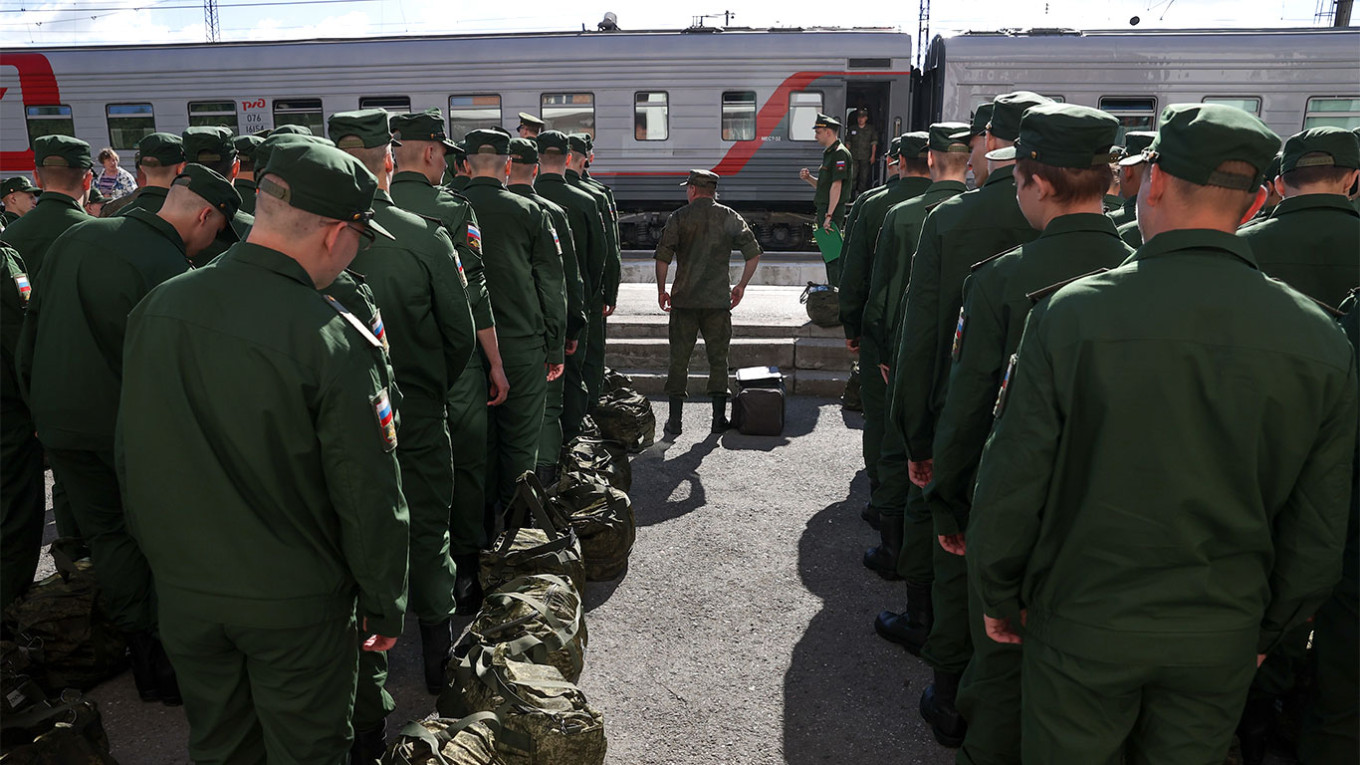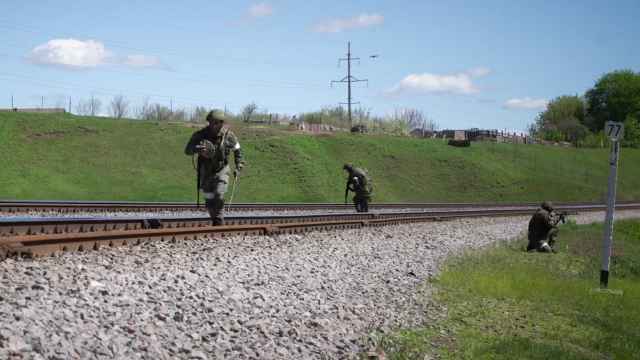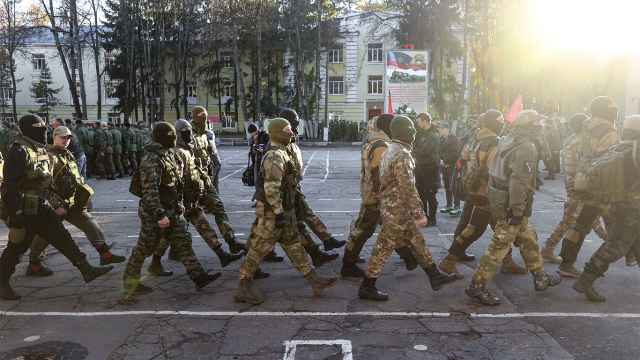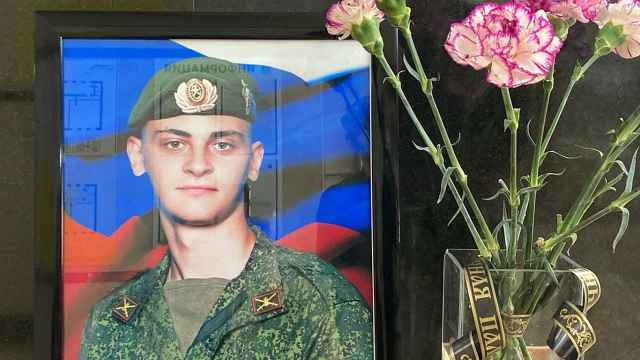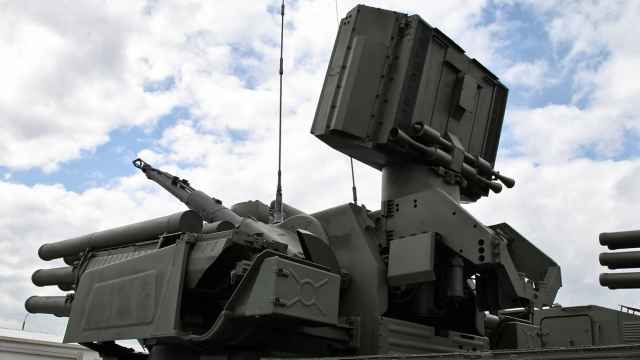Less than two weeks after joining the army, Ivan was on the frontlines of Russia’s offensive in eastern Ukraine and taking part in attacks on Ukrainian positions.
Ivan, 31, who requested anonymity to protect his safety, said he received just five days of training before being transferred to Ukraine and flung into combat.
“There was a soldier in our company who didn’t know how a machine gun works. So I taught that guy how to disassemble and assemble a machine gun. I wouldn’t want to be next to him in battle. How can you fight like that?” he told The Moscow Times.
Providing minimal training to new recruits appears to be increasingly common in the Russian army as the war in Ukraine approaches its sixth month and high casualty rates combine with a lack of general mobilization to generate serious manpower shortages.
A lack of knowledge leaves soldiers without the necessary combat skills to survive on the battlefield, according to military analysts and human rights activists.
“A week [of training] is nothing — for a soldier, it is a direct path to a hospital or a body bag,” independent military analyst Pavel Luzin told The Moscow Times.
According to Russia’s Defense Ministry website, an intensive four-week combined arms training with a "survival" course is “essential” for anyone who signs a contract with the Russian army. The program takes a total of 240 hours and includes shooting, throwing grenades and a study of military tactics.
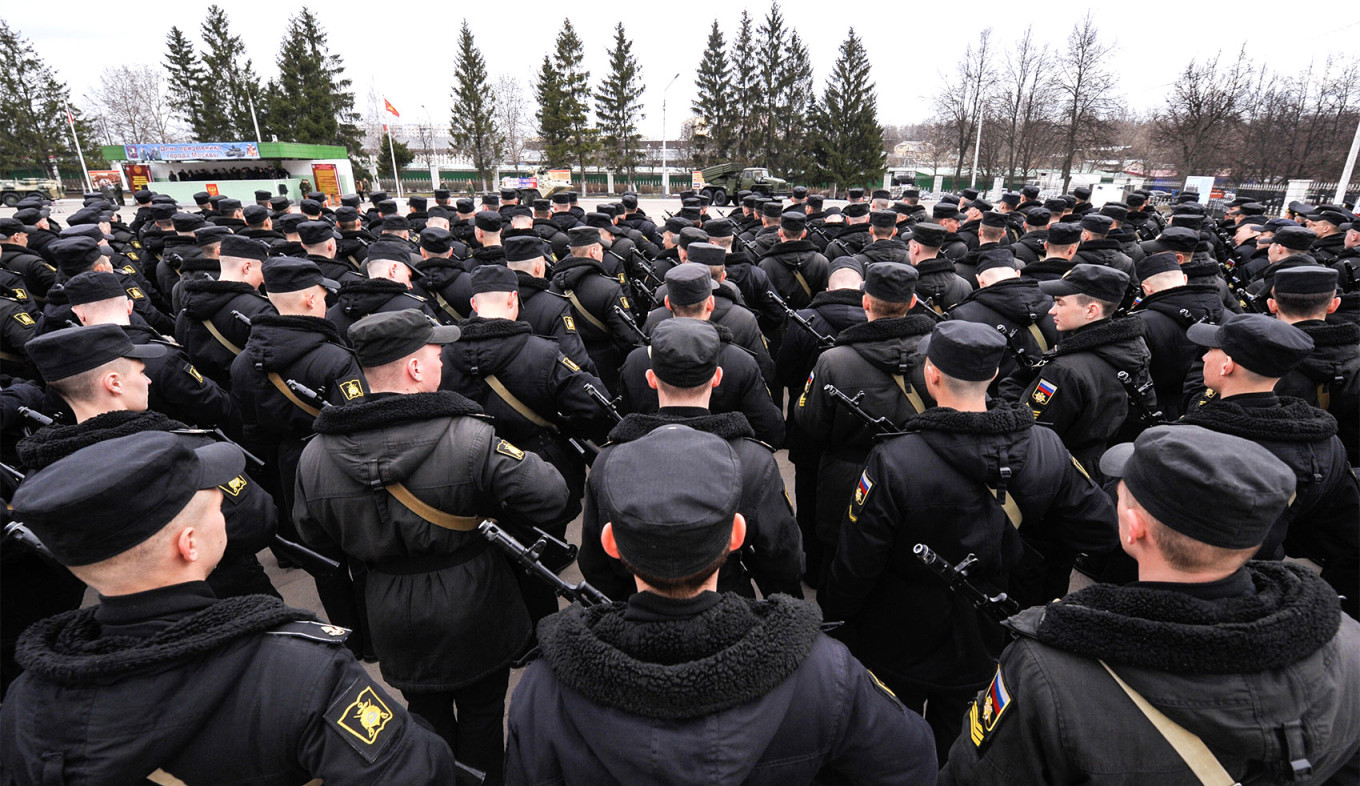
However, amid the war in Ukraine, it appears training standards are not being observed, according to Sergei Krivenko, director of human rights group Citizen. Army. Law. that provides legal assistance to Russian soldiers.
“I’ve been regularly approached by parents whose children signed a [military] contract and ended up in Ukraine just a week later,” Krivenko told The Moscow Times.
Ivan signed a three-month contract with the Defense Ministry in April.
“When the special military operation started — although in fact, it is a war — I took it as a personal tragedy,” said Ivan. “I told myself that I wanted to go there and no one would stop me. I’m a patriot.”
He was soon transferred to a military base in the Russian city of Belgorod near the border with Ukraine. Less than two weeks later, he found himself on the frontlines.
“After all the medical check-ups, they asked me if I was ready to go to the military base the day after tomorrow. They trained us for five days, we waited for another five days for a force rotation and then we went to [combat] positions,” he said in a phone interview.
In the five days Ivan and other soldiers were waiting to be deployed to Ukraine, they carried out some informal training exercises.
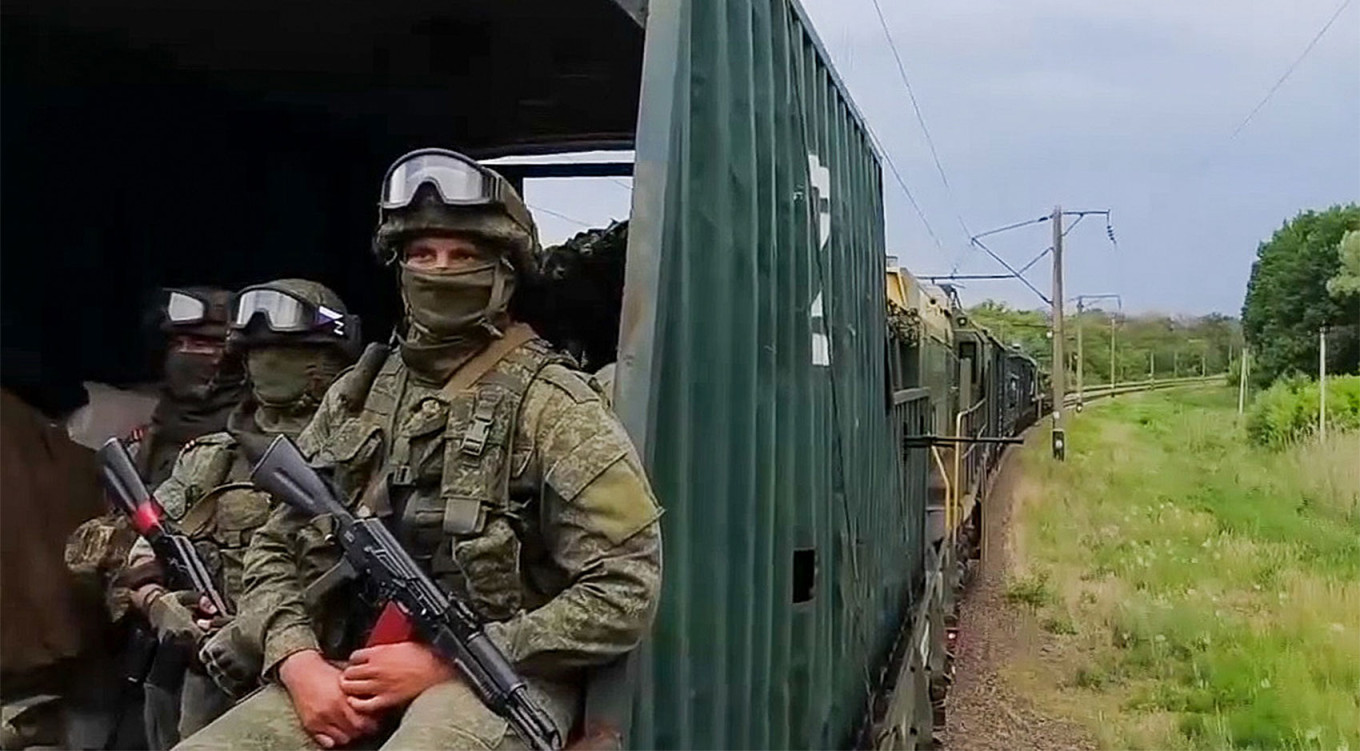
“Of course, it was not enough,” he said.
Similar accounts of new recruits receiving minimal training have appeared in Russian media in recent weeks.
“I was shocked. Some have not properly held a machine gun in their hands, have never seen real tanks in person, and they’re leaving for the frontline in a couple of days,” one anonymous soldier said last month in an interview with the BBC Russian Service.
Yevgeny Chubarin, 24, was killed in Ukraine’s Kharkiv region just four days after being transferred to a Belgorod military base on a three-month contract with the Russian military, independent news outlet Mediazona reported last month. “There was no training,” his mother Nina Chubarina told Mediazona. ”They arrived, got a uniform and a machine gun — and that’s it, go ahead.”
While most Russian men have completed at least a year of compulsory military service in the Russian Armed Forces, training is still seen as essential to update and refresh their skills, which may be many years out of date.
Under Russian law, conscripts can't be sent into combat unless they have at least four months of training. The same logic should apply to those who sign a contract with the military to go to Ukraine, according to expert Luzin.
According to Ivan, the five days of training they did receive was “intense.”
All soldiers were treated the same during the training regardless of experience. The majority had not been in a war zone before, according to Ivan, although there were some who had battlefield experience, including in Russia’s military campaigns in Syria and the North Caucasus republic of Chechnya.
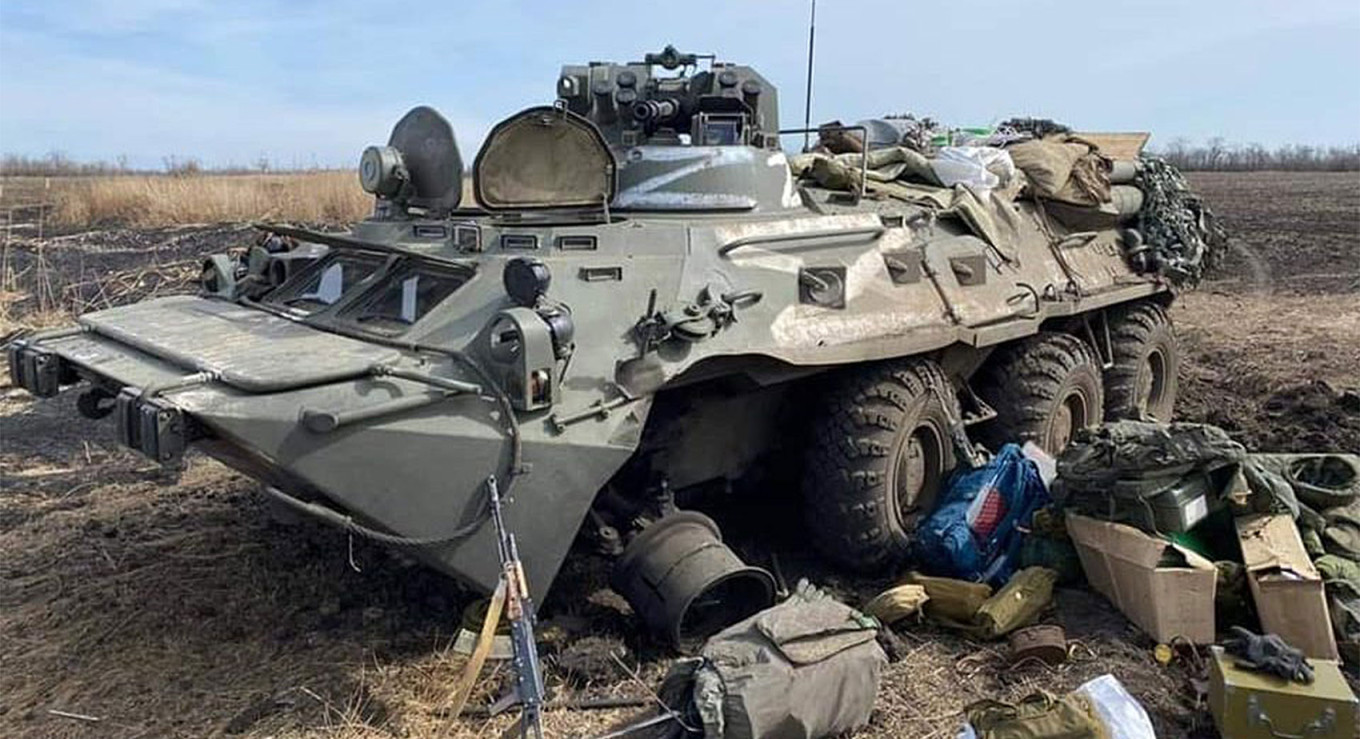
“We were at the training ground from 10 a.m. to 7 p.m. We practiced combat skills, seizing and storming buildings, all-around defense, working in combat teams, field medicine, evacuation and treatment of wounded soldiers. The focus was on those skills you needed for your position — a machine gunner, a grenade launcher operator and so on,” said Ivan.
While such basic instruction may be enough to allow soldiers to carry out simple tasks in combat, military experts told The Moscow Times military training should be much broader.
“There’s a lot that needs to be learned in terms of coordination and cooperation with a team. And it’s quite time-consuming,” said Samuel Cranny-Evans, a military analyst at the London-based Royal United Services Institute think tank.
High casualty rates mean the Russian military is likely losing cohesion, according to experts, with training deficiencies only exacerbating this problem.
The army has begun to mix soldiers from different units, according to Dara Massicot, a senior researcher at the U.S.-based RAND think tank and a former senior analyst at the Pentagon. “The soldiers don’t know the commanders, they don’t know where their unit is as it's fighting in the field,” Massicot told The Moscow Times.
“Plus, there’s a lack of specialists [in the Russian army]. This means if some equipment breaks down, they simply cannot repair it,” she added.
Despite the situation on the battlefield, one of the motivations for people signing up to fight is apparently money, with the military offering salaries up to four times higher than local averages.
Ivan said he was paid over 240,000 rubles ($3,794) per month.
Independent Russian journalists have used publicly available information to confirm the deaths of almost 5,000 Russian soldiers in Ukraine. However, the actual death toll is likely to be much higher and analysts have estimated the true figure to be well over 10,000.
The Russian Defense Ministry last updated its official death toll in late March, with 1,351 confirmed fatalities.
Ivan suffered shrapnel wounds in his leg and arm while fighting near the northeastern Ukrainian city of Izyum in late April, and was transferred to a hospital in Russia. He said last week that he was still recovering from his wounds at home in Moscow.
“The problem is that the planners of the operation assumed the Ukrainians would not resist them in this way, so they didn’t think about the manpower and now they are just filling the gaps,” said analyst Massicot.
“Essentially it all means they [the Russian army] are not going to advance quickly anymore.”
A Message from The Moscow Times:
Dear readers,
We are facing unprecedented challenges. Russia's Prosecutor General's Office has designated The Moscow Times as an "undesirable" organization, criminalizing our work and putting our staff at risk of prosecution. This follows our earlier unjust labeling as a "foreign agent."
These actions are direct attempts to silence independent journalism in Russia. The authorities claim our work "discredits the decisions of the Russian leadership." We see things differently: we strive to provide accurate, unbiased reporting on Russia.
We, the journalists of The Moscow Times, refuse to be silenced. But to continue our work, we need your help.
Your support, no matter how small, makes a world of difference. If you can, please support us monthly starting from just $2. It's quick to set up, and every contribution makes a significant impact.
By supporting The Moscow Times, you're defending open, independent journalism in the face of repression. Thank you for standing with us.
Remind me later.



